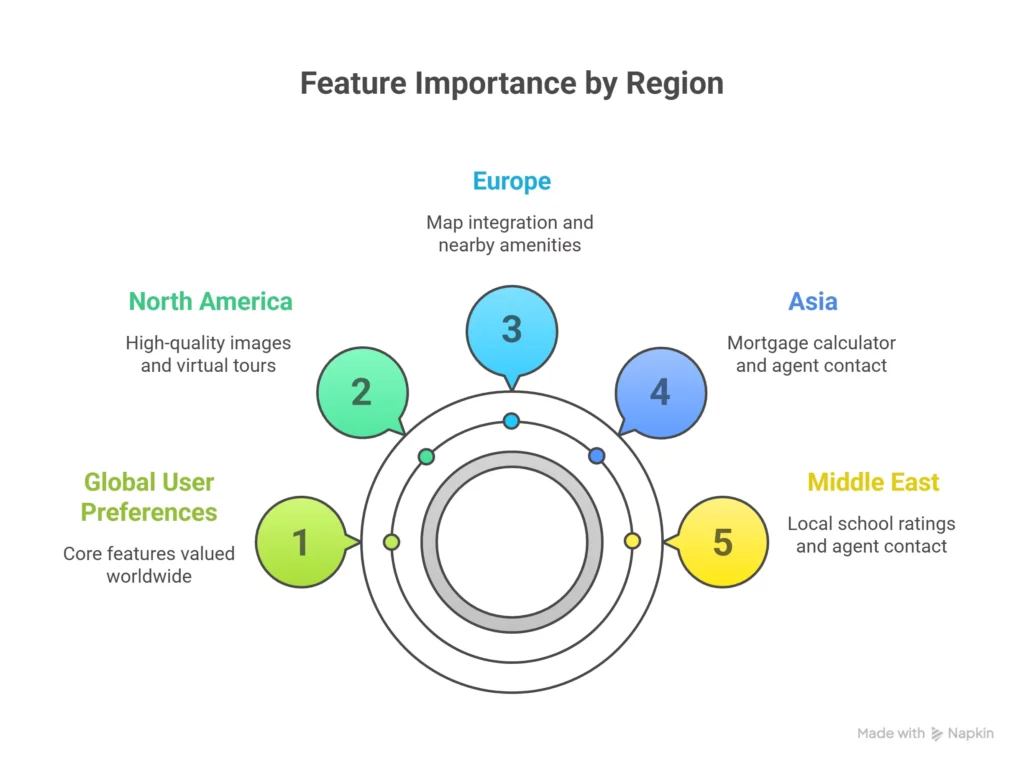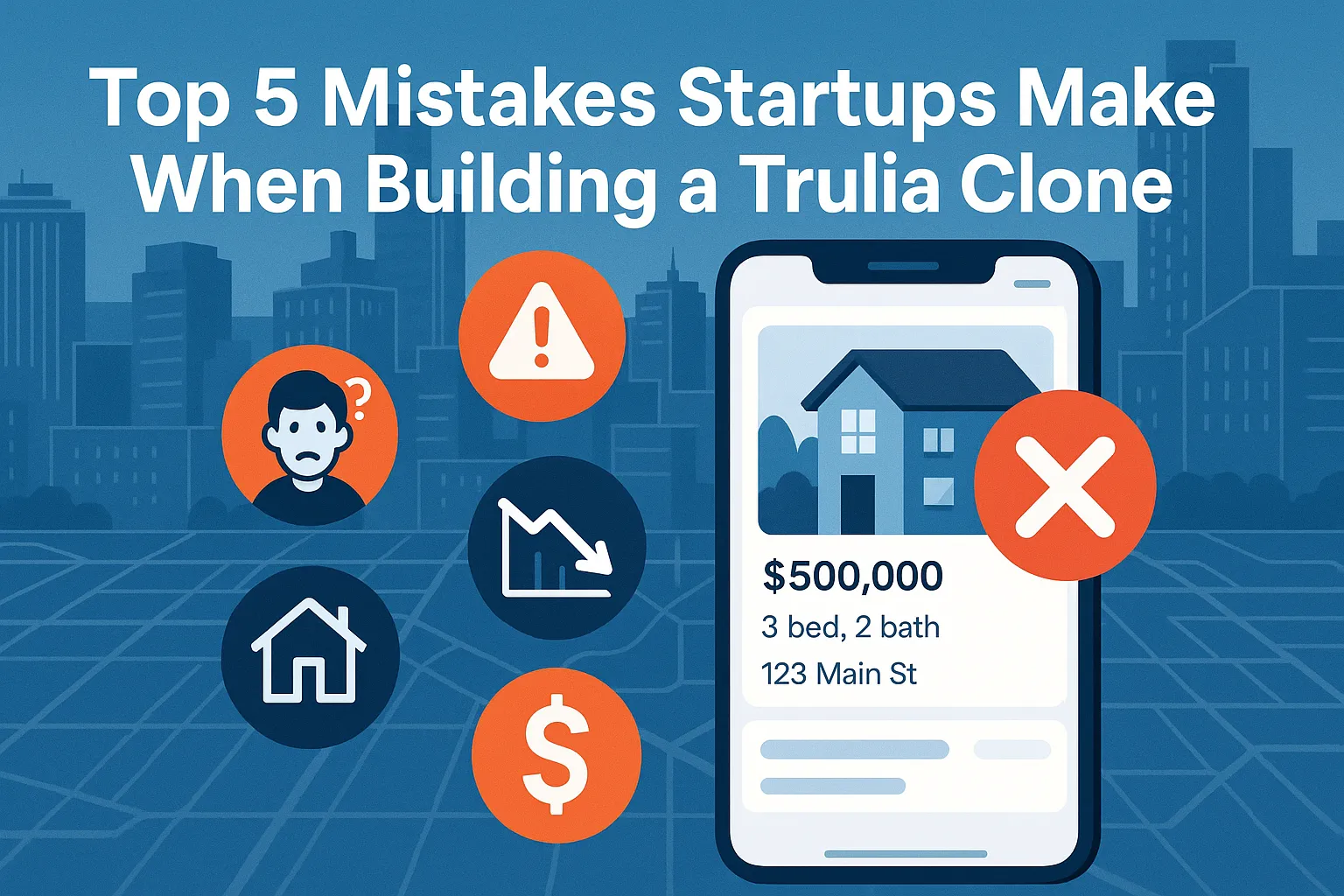Real estate tech is booming in 2025. The idea of launching a platform like Trulia feels like striking gold. Everyone’s searching for a place to live, and smartphones have practically replaced the open house. But here’s the kicker—while the market is hot, not every startup hits the jackpot. Plenty crash and burn trying to clone Trulia without understanding what really makes it work.
A friend of mine once tried launching a real estate platform in his city. He had a solid vision, but a few wrong moves turned it into an expensive learning experience. He poured time and money into flashy features but ignored what users actually wanted. Sound familiar? Maybe you’ve been there too.
In this blog, I’m not just listing mistakes for the sake of it. I’ll break down the biggest blunders startups make when building a Trulia clone—and more importantly—how you can dodge them. Expect real talk, insights, and a few lightbulb moments.
So if you’re thinking about building the next big property app, or you’ve already started sketching out that wireframe, read this blog to the end. It might just save you months of frustration (and thousands of dollars).
1. Copy-Pasting Features Without Understanding User Needs
Startups often get starry-eyed copying every feature Trulia offers. Virtual tours? Check. Mortgage calculator? Check. Local school ratings? Why not. But here’s the twist—Trulia has spent over a decade learning what works. You haven’t.

Instead of blindly replicating, talk to your users. If you’re launching in a smaller city, maybe people care more about nearby transport than luxury amenities. Or maybe they just want simpler listings and clear landlord contact info.
2. Underestimating the Power of Local Listings and Partnerships
Here’s the tea: Trulia works because it’s deeply integrated with local agents, property databases, and MLS feeds. Startups often overlook this, thinking a basic listing form is enough. Spoiler—it’s not.
Without verified, local listings, your platform feels empty and untrustworthy. Build partnerships early. Team up with real estate agents, brokers, or even property owners. Data is the new location, location, location. If you’re serious about building the right connections and partnerships, consider contacting our team at Miracuves to explore customized solutions.
3. Building a Complicated UI That Confuses Users
Real estate is emotional. People are looking for their next home, not trying to solve a puzzle. A clunky interface full of dropdowns and filters might look “feature-rich” on paper but frustrates users fast.
Use intuitive navigation. Highlight property photos. Simplify the search flow. If your app looks like a control panel from a spaceship, you’re doing it wrong.
4. Ignoring SEO and Content Strategy From Day One
This one stings. Startups spend months building the app, then launch… into a black hole. No traffic. No visibility. Why? Because they didn’t bake SEO into their content or architecture.
Trulia dominates search results because it’s optimized like a pro. You need to think the same way: structured listings, keyword-rich property pages, local guides, FAQs—the works. SEO is your 24/7 marketing team.
5. No Monetization Plan Until It’s Too Late
You’d be shocked how many startups launch with the “build first, monetize later” mindset. It’s fine for hobby apps—but not for real estate platforms. Are you charging for premium listings? Offering agent subscriptions? Running ads?
If you’re not thinking about how to earn while solving user problems, you’re walking blind. Build monetization logic into your MVP. Trulia didn’t wait to get paid—and neither should you.
Conclusion: Build Smart, Not Fast
Let’s wrap this up. Building a Trulia clone is not just about mimicking features—it’s about solving your market’s real estate problems with clarity and intent. Avoid the shiny traps, talk to users, design for simplicity, think long-term with SEO, and don’t forget the cash flow.
In 2025, the real estate game is about agility, insight, and execution. With the right moves (and a few mistakes dodged), your Trulia clone can do more than just survive—it can thrive.
FAQs
Q1. What’s the minimum viable feature set for a Trulia clone?
Start with property listings, search filters, map integration, and contact buttons. Don’t try to build the moon.
Q2. How do I get local property data?
Partner with agents, integrate MLS APIs (if available), or let verified users add listings with moderation.
Q3. What’s the best monetization strategy for real estate apps?
Freemium listings + premium boosts work great. Also consider ad slots and subscription plans for agents.
Q4. Can I use WordPress or do I need custom code?
For MVPs, WordPress real estate themes/plugins can work. But for scale? Go custom or hybrid.
Q5. How do I ensure user trust?
Display verified listings, agent badges, user reviews, and real-time chat or support.
Q6. Do I need a mobile app or just a website?
Start with a mobile-friendly site. But if 80% of traffic is mobile (which it likely is), build that app soon.








